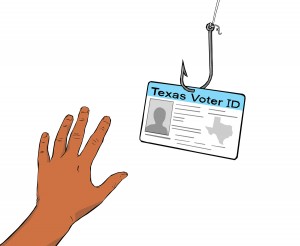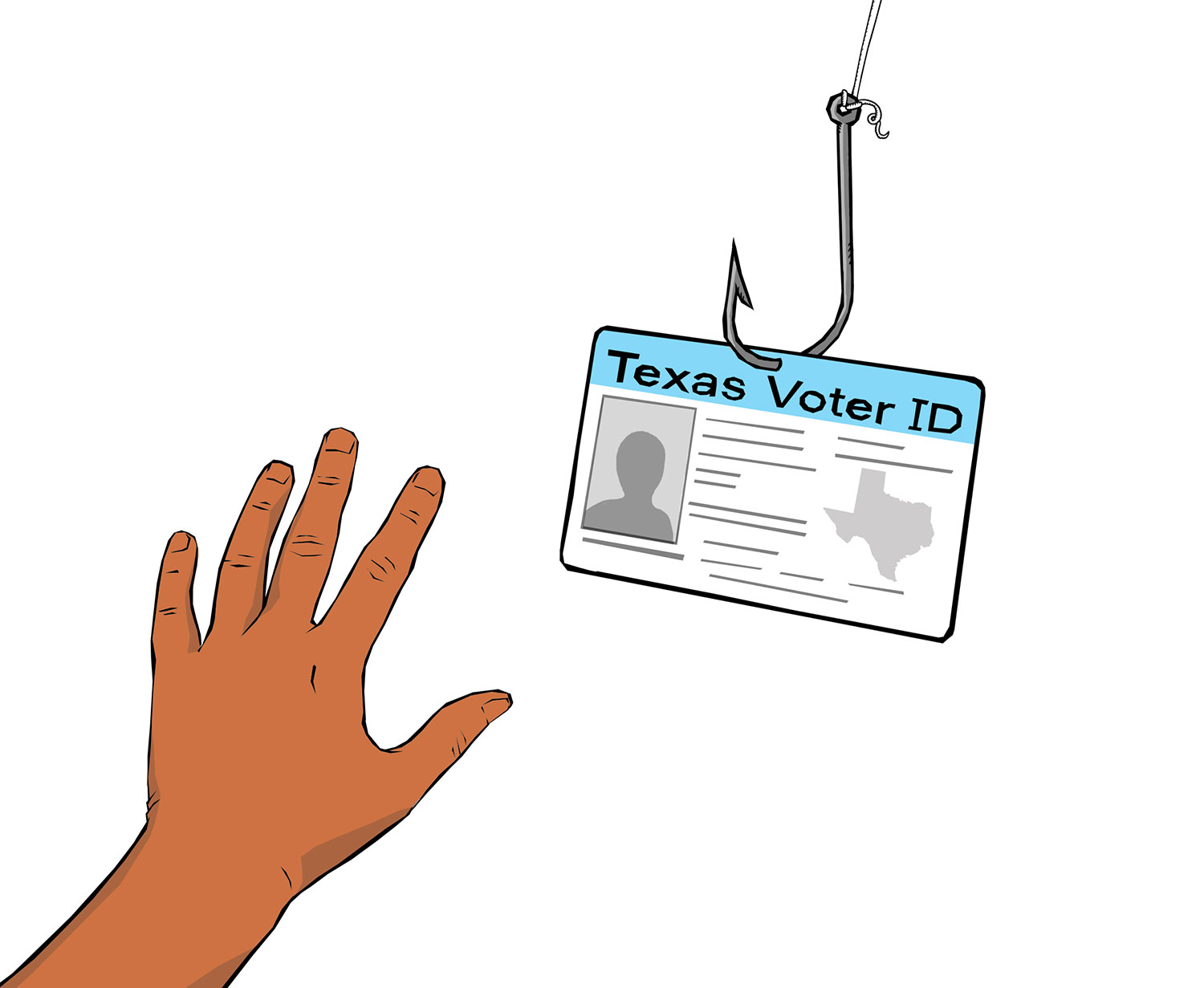 Students without a state-issued ID may find it difficult to vote this year since school-issued student IDs will not be accepted.
Students without a state-issued ID may find it difficult to vote this year since school-issued student IDs will not be accepted.
After the Supreme Court struck down the provision of the Voting Rights Act requiring some states to get federal preclearance before changing voting laws, the Texas attorney general immediately enforced controversial redistricting maps and strict voter ID laws approved by the legislature. These are the same laws that a panel of federal judges claimed last year would “impose strict and unforgiving burdens on the poor” and are some of the “most stringent in the country.”
In 2008, the 18-to-29-year-old demographic made up 16 percent of Texas voters in the presidential election, roughly 1.3 million. A majority of them voted Democratic. Opponents of the legislation claim this is a tactic used by the Republican Party, along with the controversial redistricting maps, to cut into the Democratic vote.
Being the gun-loving state that it is, Texas will accept a concealed handgun license at the polls. Other forms of ID that will be accepted are a state-issued driver’s license or ID card issued by the Department of Public Safety, a military ID containing the person’s photograph, a U.S. citizenship certificate, a U.S. passport or Texas elections ID.
Proponents of the ruling say Texans without a state-issued ID card can get one free from the Department of Public Safety. But it requires the same documentation needed to get a driver’s license, and these underlying documents can sometimes be costly. For example, if people have name changes that do not appear on their birth certificates, they must pay costly fees to get the name change, and the process can take over a year in court.
Since the law was enforced, only six of the election cards have been issued. The Department of Public Safety said there have been several calls, and people have been turned away for varying reasons.
The state cannot stop people from voting, but with the new law, officials can discourage people from trying by nitpicking the documents they provide, forcing people into courtrooms and fees to get the “free” ID.
Many students are just turning 18 and may not have a driver’s license or state-issued ID for one reason or another and now are being forced to get one to vote for the first time. For some, this won’t be an issue. For others who may be on financial aid and working to pay their own way through school, this costly and timely process may deter them from trying to vote. Students are very busy and may not put voting high on the priority list if they have to jump through hoops and take money out of their pockets just to get the proper ID according to the new law.
The new law also restricts veterans from using their Veterans Affairs cards. Many veterans are returning to school and already have mountains of paperwork to go through. This ruling just adds to the load and again may not be a high priority.
Many opponents of the bill claim the law disenfranchises minorities and senior citizens, but few have really spoken up for students. One way to combat this is go through the paperwork, get the proper ID and then find out who voted for this act and vote against them. The law can be reversed if the right people hear the right voices.
The right to vote is a constitutional right, and it is an important part of the democratic process. It is important that every voice is heard, and students have the potential to have one of the biggest collective voices. They also have the potential to be one of the biggest groups affected by this change.
If they can’t speak for themselves at the polls, who will?

